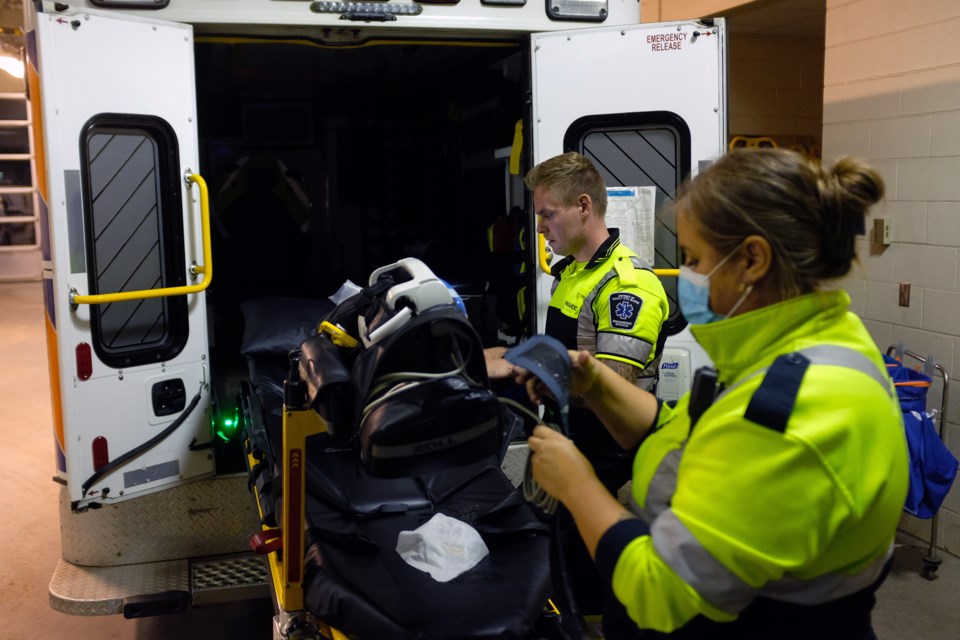As offload delays at Sault Area Hospital continue to use up valuable time in which paramedics could be on the road, the management of the Sault Ste. Marie Paramedic Service is looking outside the box for potential solutions.
Offload delays occur when a paramedic crew shows up at the hospital with a patient but is unable to transfer them to care in the Emergency Department (ED), usually because of lack of available nursing staff.
On Thursday, paramedic chief Katie Kirkham presented the monthly offload delay report to the District of Sault Ste. Marie Social Services Administration Board (DSSAB)
Last month, paramedics transported a total of 874 patients to Sault Area Hospital and paramedics spent a total of 428 hours in offload delay, unable to respond to any other calls. Those numbers were down from the previous month, in which 1,002 patients were transported and a total of 685 hours were spent in offload delay.
Those numbers are way up from October, when Kirkham presented a record low number of offload delays.
Kirkham said for the past four months the hospital has been dealing with escalated volumes of community seasonal illnesses such as COVID-19, Influenza and Respiratory Syncytial Virus (RSV).
"We are starting to come out the other side of respiratory season at the hospital, which is great because we are starting to see a reduction in call volume and ED use because of the less respiratory illnesses showing up in the emergency department," she said.
The effect offload delays have on the service's bottom line is difficult to determine, Kirkham said in her report to the board. But the forced overtime and up-staffing result in significant costs to the service.
The service has been working with SAH and the Ministry of Health in recent years to come up with solutions to the problem, which is occurring not only in the Sault but also in many other communities across the province.
Kirkham told the board that she and other members of the service's management have put their heads together to come up with solutions that could have an effect on bringing down the amount of time paramedics spend in offload delay.
Among the ideas being considered is the deployment of rapid response community paramedics. They would be called to manage medium-severity patients in their homes or long-term care facilities for issues that may not involve a visit to the ED.
Kirkham said the service is working out the details for that program and seeking a funding source for it.
The service is also exploring alternative patient care pathways aside from transporting patients to the ED. Currently, the service can divert patients to the Northway withdrawal management centre and the Community Resource Centre shelter, but it is looking to expand its diversion options to other shelter locations, primary care clinics and enhanced mental health referrals.
"We've seen some success with the Community Resource Centre diversion and also to withdrawal management, so we would like to continue doing that," said Kirkham.
The service is also proposing integration of case managers into the Community Paramedicine team, with a goal of helping patients to make the health and social connections they need in the community. That program recently received word its funding has been renewed until 2026.
